Book Digest: February 26, 2007
In order to reify my credentials as a bona fide journalist I feel that I must occasionally create some list or other and also exhibit some sense of timeliness and topicality—these being the only paths open to me as I have foresworn having lunch with anyone but close friends. So amidst the post Oscar buzz here is a list of novels that were arguably made into decent to stellar movies. I leave it to the critics amongst you to irrelevantly judge which iterations are better.
- Catch 22 (Joseph Heller/Mike Nichols)
- Out of Sight (Elmore Leonard/Steve Soderberg)
- The English Patient (Michael Ondaajte/Anthony Minghella)
- Pride and Prejudice (Jane Austen/Joe Wright)
- Dr. Strangelove (Terry Southern/Stanley Kubrick)
- To Kill a Mockingbird (Harper Lee/Robert Mulligan)
- The Long Goodbye (Raymond Chandler/Robert Altman)
- Our Man in Havana (Graham Greene/Sir Carol Reed)
- Tom Jones (Henry Fielding/Richard Lester)
- Dr. Zhivago (Boris Pastenak/David Lean)
- Nobody’s Fool (Richard Russo/Robert Benton)
- Empire Falls (Richard Russo/Robert Benton)
- 92 in the Shade (Tom McGuane/Tom McGuane)
- The Constant Gardener (John le Carré/Fernando Mireilles)
There are no doubt some titles that have slipped through the sieve that serves as my recall—but that’s good start, no? On the other hand, the real imaginative leap would be to collect promising novels that have as yet to have been made into films—I leave that for another time.
And from the under attended mind of Karl Kraus (referring to World War I): “The war was a disastrous failure of the imagination and an almost deliberate refusal to envisage the inevitable consequences of words and acts…made possible above all by the corruption of language in politics and by some of the major newspapers.”
Swink (Everybody Has It Figured Out But You), Issue 3, Early 2007 edited by Leelila Strogov & Sophia Seidner
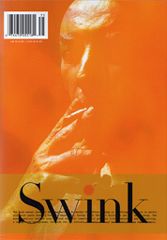
It has been a cheering sign that in recent years there have been a drumbeat of new entries in the small-magazine world—whether they are flourishing may be too much to expect—mere survival is the normal signal of success. Ambitiously bi- coastal, this perversely subtitled edition of Swink brandishes a fair amount of unfamiliar names, though Daniel Alarcon and Karl Iagnemma, Lauren Slater, and Lisa Glatt have contributions. Have a peek—frankly, I am certain you will figure it out.
» Read an excerpt from Swink (Everybody Has It Figured Out But You)
Cowboy in Caracas: A North American’s Memoir of Venezuela’s Democratic Revolution by Charles Hardy
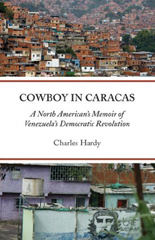
As Fidel Castro has assumed the status of a paper, if not toothless, tiger, the ideologues in our foreign policy apparatus have done a splendid job of demonizing the flamboyant president of oil-rich (wouldn’t you know) Venezuela. There is all sorts of evidence that such characterizations of Hugo Chavez are made up of whole cloth (see my chat with Eduardo Galeano, for instance). And now comes this report from the hillside barrios of Caracas by ex-priest Charles Hardy of the on-the-ground conditions and the real people who comprise the Chavezita revolution. Keep in mind that Chavez was overthrown by a coup in 2002 (do we smell a rat here?) and was returned to office within 48 hours, which no doubt vexed the aparatchiks I mentioned above. Stay tuned to this story—it has all manner of narrative punch.
» Read an excerpt from Cowboy in Caracas
Fieldwork by Mischa Berlinski
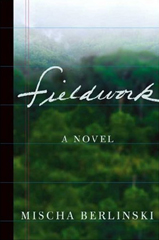
Mischa Berlinski, who spent time as a journalist in Thailand, offers up his debut novel set in Thailand—with a protagonist slacker-journalist named Mischa Berlinski who becomes embroiled in the case of an American anthropologist, Martiya van der Leun, who commits suicide while imprisoned in a Thai jail. Which takes him in to the hinterlands of Thailand and intimate contact with remote Thai hill tribes, all of which is a spicy gumbo of circumstance and setting. Here’s Tim Rutten’s assessment: “[It] is a notable piece of first fiction—at once deeply serious about questions of consequence and refreshingly mindful of traditional storytelling conventions. If his narrative sometimes bumps against a young writer’s impulse to tell you everything he knows, it’s a forgivable shortcoming, particularly when stacked against this novel’s admirable strengths.” And Nigel Bartley fills in, “The West has long equated exotic peoples with the dark and the wild. It is the strength of Mischa Berlinski’s novel to chart those elements in the heart of the anthropology that seeks to explore them. He turns received ideas on their heads, for he makes us unsure about the things we thought we knew while showing us truths that we like to hide from ourselves.” Not to mention that his book showed up on the hardest-working man in the book world, [Dandy] Dan Wickett’s radar, which recommends it.
» Read an excerpt from Fieldwork
A Bee in the Mouth: Anger in America by Peter Wood
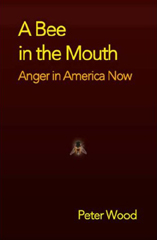
In the course of my duly appointed rounds as book-world tour guide for TMN and others, I come across all manner of verbiage connected to the books I am interested in, as well as industry gossip, which I am not interested in (unless, of course, friends have been appointed to senior-senior management positions.) It must be said that the publisher’s descriptive copy for this fascinating book is commendably accurate and succinct without the publicity cant that is occasionally amusing and more frequently nauseating. Call me lazy or call me short on imagination. but I can’t do better than this (except for the lame last sentence):
A Bee in the Mouth
“Traditions of tolerance and moderation that have always kept us one nation.” Oh, my! Nonetheless, this is certainly a useful and original book, to quote the author, “My aim is neither to cure anger nor to enhance its undoubted pleasures. Rather I want to describe our New Anger in contrast to our older habits of emotional restraint then to explain how it became so widespread and so intense in American life.”
» Read an excerpt from A Bee in the Mouth
Debating Race by Michael Eric Dyson
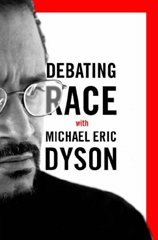
OK, this is not a promising subject for a book. Certainly not over 400 pages’ worth. Dr. Dyson, who is not short on, uh, confidence, and his publisher certainly thinks this is a contribution to the subject, if not the debate. And they may be correct. This anthology collects the conversations and such that Dyson has facilitated in a productive career that has produced more than a dozen books—including such interlocutors as John Kerry, John McCain, Cornel West Jesse Jackson, Stephen Colbert Ann Coulter and Bill O’Reilly, the NPR/PBS crew, Ray Suarez, Maria Hinijosa, and Juan Williams. What recommends this is that these are dialogues and polylogues, which bring vitality to a well-trod subject.
» Read an excerpt from Debating Race
The Collected Poems (1956-1998) by Zbigniew Herbert
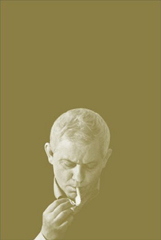
Zbigniew Herbert, who died in 1998, was a Polish resistance fighter during World War II and a spiritual leader of the anticommunist movement in Poland. His books include Selected Poems (translated by Czeslaw Milosz in 1968, which made Herbert a popular poet in the English-speaking world), Report from the Besieged City and Other Poems, Mr. Cogito, Still Life with a Bridle, and King of the Ants, which of course this anthology obviates. Milosz observes, “If the key to contemporary Polish poetry is the selective experience of the last decades, Herbert is perhaps the most skilful in expressing it and can be called a poet of historical irony. He achieves a sort of precarious equilibrium by endowing the patterns of civilization with meanings, in spite of all its horrors.” In his introduction to this book, Adam Zagajewski argues that the duality of occupying two worlds—”the real, tangible world of history” and the “dense layer of dreams, imagination, fantasms”—and their interaction produce poetry. Makes sense, yes?
» Read an excerpt from The Collected Poems (1956-1998)
Mississippi Sissy by Kevin Sessums
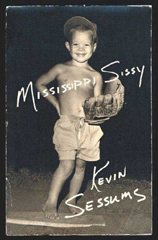
I have often enough been tempted to limit my attention to the world of books to commentary on titles and covers and, of course, creating lists from these profound deliberations. The occasions for such unbridled flights of whimsy are book titles such as the one before us. Kevin Sessums, known as a celebrity journalist (meaning, I think, he attends to celebrities) for such journals of divine revelations as Vanity Fair and Allure, chronicles his sissy childhood in Forest, Miss., where, among other things, he happened to have befriended the inimitable Eudora Welty. Sessums breathes new life into that chestnut by Flannery O’Connor, “When I am asked why Southern writers particularly have a penchant for writing about freaks, I say it’s because we are still able to recognize one.”
» Listen to an excerpt from Mississippi Sissy
Their Dogs Came With Them by Helena María Viramontes
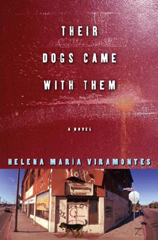
Award-winning author Helena María Viramontes has to her credit The Moths and Other Stories and Under the Feet of Jesus, and has co-edited two collections: Chicana (W)Rites: On Word and Film, and Chicana Creativity and Criticism. And she lives in Ithaca, New York, where she is a professor in the Department of English at Cornell University. This, her second novel, is set in the barrio of East Los Angeles and follows the progress of a cast of indomitable characters through the crucible of the red hot and roiling ‘60s. Julia Alvarez, no slouch herself, commends Ms. Viramontes to us. And that works for us.
» Read an excerpt from Their Dogs Came With Them
The Cross and Other Jewish Stories by Lamed Shapiro, edited and with an Introduction by Leah Garrett
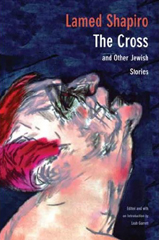
Lamed Shapiro (1878-1948) was born in Russia and came to the United States in 1905. He was the author of short stories, novellas, and essays, was a tragic figure, and led an ambulatory life marked by regular transatlantic crossings, alcoholism, depression, and failed enterprises. Leah Garrett assembles 16 stories of which she opines, “Lamed Shapiro was able to uncover an incorruptible human essence or a metaphysical symbol that would be henceforth recoverable in living color through the perfect medium of his art.” Shapiro successfully reclaimed the lost world of the shtetl as he negotiated the New World of Vaudeville, East Broadway, the Bronx, and Union Square.
The Boy Who Was Raised as a Dog: What Traumatized Children Can Teach Us about Loss, Love, and Healing by Bruce Perry and Maia Szalavitz

Ever since reading Oliver Sacks’s neurology case studies and lately the narratives and ruminations of Atul Gawande, I have come to enjoy medical vignettes. Child psychiatrist Bruce Perry’s and founder of the Child Trauma Academy in Houston, Maia Szalavitz’s, book is concerned with what happens when a young brain is traumatized and the effects of such terror, abuse, or disaster. The 11 “stories” in The Boy Who Was Raised as a Dog reveal an astonishing capacity by the brain for healing. As do Perry’s accounts of recovering children—exhibiting how simple things like surroundings, affection, language, and touch can deeply impact the developing brain and spur recovery. Good work, indeed.
The Goat Bridge by T.M. McNally
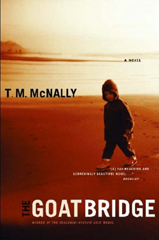
Mary Bisbee, who represents the U of Michigan Press and was responsible for getting me a copy of the largely unheralded Miss Kansas City by Joan Frank, recommended this novel about an American photographer from Chicago in the war-shattered, soon-to-be-former Yugoslavia struggling to rebuild his life after his son is kidnapped in Rome. McNally writes, “Evil. It’s not a person. It is what a person does. As is Good.” Which is an idea sufficient to propel scores of novels. And so it must be said, I thank Ms. Bisbee once again for her well-targeted suggestion.
